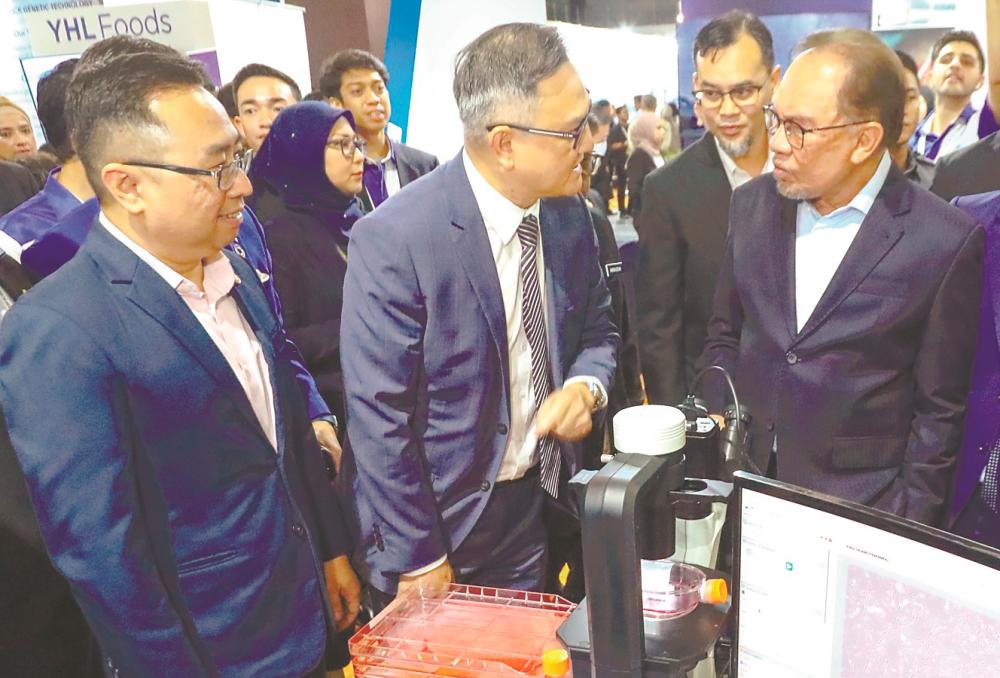KUALA LUMPUR: Malaysia is on track to advance biotechnology and bio-based sectors as the main drivers of the national economy, with the vision of creating a bioinnovation society by 2030.
Science, Technology and Innovation Minister Chang Lih Kang said various initiatives are being undertaken to achieve the objectives of the National Biotechnology Policy 2.0, which emphasises the active involvement of all levels of society in utilising scientific knowledge, advancing sophisticated technology, and encouraging innovation for the common good.
“The government has created activities and programmes that have been designed to target all segments of society, whether it be schoolchildren who are introduced to science, technology, engineering, and mathematics activities, graduates seeking careers in biotechnology, housewives looking for products to enhance family health, or entrepreneurs seeking business partners to expand their ventures.
“These initiatives provide a solid foundation for realising the National Biotechnology Policy 2.0 goals, which aim to promote the biotechnology and bio-based sectors as key drivers of the national economy to achieve a bioinnovation society by 2030,” he told delegates at the National Bioeconomy Showcase 2024 (NBioShowcase 2024) today.
The event was officiated by Prime Minister Datuk Seri Anwar Ibrahim.
At the event, 11 memorandums of understanding (MoU) and cooperation agreements, estimated to be worth RM1.5 billion, were exchanged between biotechnology industry leaders and public and private entities, involving local and international parties.
One notable MoU was between ALPS Global Holdings Bhd and PT Biotis Pharmaceuticals Indonesia for commercialising products and services developed through the collaboration, including vaccines, stem cell products and other biosimilar products.
Universiti Kebangsaan Malaysia exchanged an MoU with Singapore-based Mirxes Pte Ltd to develop a blood-based screening test for the early detection of colorectal cancer.
Malaysian Bioeconomy Development Corporation (MBDC) and Invest Selangor exchanged a MoU to establish a strategic collaboration to enhance outreach and facilitation services for the biotechnology and bio-based sectors.
Malaysia Co-operative Societies Commission and MBDC exchanged an MoU to establish a strategic collaboration aimed at empowering the cooperations’ products and services, particularly within the biotechnology and bio-based industries, which require expertise, business matching, and other forms of assistance.
These collaborations are expected to drive investment and development in the bioeconomy, enhance the development of skilled human capital in biotechnology, promote local bio-based products and services, and improve capabilities in biopharmaceuticals and early cancer detection and other related fields.
Furthermore, they demonstrate the growing maturity and competitiveness of Malaysia’s biotechnology and bio-based industries globally.
Chang said, “With the support of Mosti, more than 520 biotechnology and bio-based companies have been facilitated by Bioeconomy Corporation, including BioNexus status companies, companies under the Bio-based Accelerator Programme, and companies involved in high-impact biotechnology projects in Malaysia.
“Cumulatively, all these companies have achieved impressive milestones, with approved investments amounting to RM14.3 billion and contributing RM37.5 billion to the country’s gross domestic product (GDP).”
MBDC CEO Mohd Khairul Fidzal Abdul Razak said the company will strive strengthen Malaysia’s position as a centre of biotechnology excellence in the region, particularly in the healthcare sector.
“The creation of unicorns in the biotechnology industry opens up opportunities for high-skilled jobs and talent development among Malaysians while enhancing the capabilities of local workers in science, technology, and innovation.
“With strong support from the government and Mosti, Bioeconomy Corporation will intensify our efforts to ensure that the biotechnology and bio-based industries continue to drive Malaysia to higher levels of global competition, enhance local technological efficiency, and contribute 5% to the nation’s GDP as outlined in the National Biotechnology Policy 2.0,” he said.









